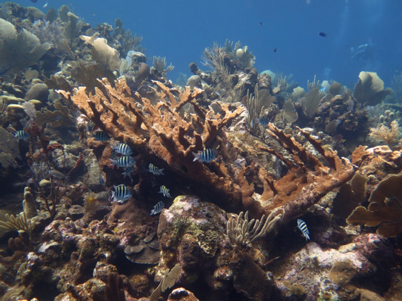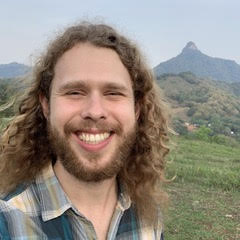In terms of biodiversity, socio-economic importance and popular appeal, coral reefs punch far above their weight class. Despite making up less than one percent of the ocean’s surface, they support over twenty-five percent of marine species. This biodiversity drives the economies of many developing nations through fishing and tourism, as well as providing possible natural compounds for use in pharmaceutical drugs.
The key to understanding coral reefs is the relationship between the corals themselves (which are animals, distantly related to jellyfish) and single-celled photosynthetic algae that live within their cells. These microscopic plants turn sunlight and carbon-dioxide into food for the corals, who in turn provide a stable and protective environment for the algae. Under stress, this relationship breaks down, and corals expel the algae in a phenomenon known as coral bleaching. Without their major source of nutrition, the corals then starve and may die. As the effects of human activity on the planet increase – such as rising temperatures, ocean acidification and pollution – coral bleaching and reef decline has become more and more prevalent.

To better predict how corals will respond to changing conditions and promote their survival, we need to better understand their biology at the cellular level. Aaron Rose, a doctoral fellow with the CREST Center for Aquatic Chemistry and Environment at Florida International University, is doing just that.
“My research is focused on the ways in which the corals and their algal symbionts ‘talk’ to one another and regulate each other’s gene expression in response to environmental conditions,” said Rose. “As we begin to understand the mechanisms responsible for coral bleaching, we hope to find new strategies and methods for promoting the survival of coral reefs and all that they provide.”
The NSF CREST Center for Aquatic Chemistry and Environment (CAChE) is housed within the Institute of Environment, a Preeminent Program at Florida International University.
